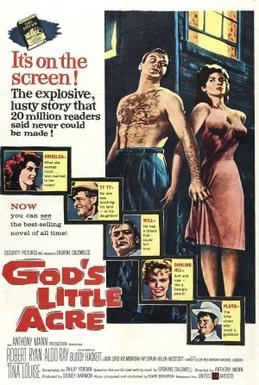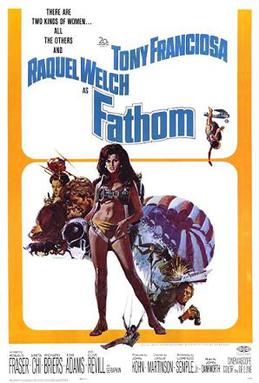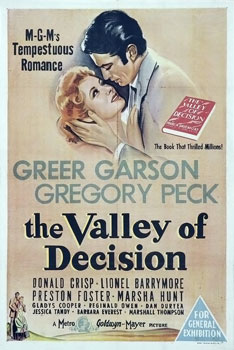Search This Blog
Wednesday, June 30, 2010
Death Defying Acts (2008)
A con artist (Catherine Zeta-Jones) and her daughter (Saoirse Ronan, ATONEMENT), working as a medium and her assistant, plot their biggest con, the internationally famous magician Harry Houdini (Guy Pearce). But both romantic and psychic complications ensue that neither are prepared for. This Gillian Armstrong (MY BRILLIANT CAREER, LITTLE WOMEN) film slipped under the radar with little fanfare (at least here in the States) and one can see why. It’s a mere slip of a film, an engrossing conceit that never taps into its potential while slipping into a maudlin mire. There’s a strong performance by Pearce as the bedeviled Houdini. With Timothy Spall.
The Long, Long Trailer (1954)
A newlywed couple (Lucille Ball, Desi Arnaz) decide to invest in a trailer home and spend their honeymoon traveling through various states to the engineering projects that he is employed on. Directed by Vincente Minnelli (DESIGNING WOMAN), this movie was capitalizing on the success of the I LOVE LUCY television series. MGM assigned their top director Vincente Minnelli to the project and took a chance that their popularity would transition to the big screen. Their personas for the film depart from their Ricky/Lucy Ricardo characters on the TV show but they were obviously playing it safe and didn’t wander far enough to not make it seem on some level like a Technicolor (actually Ansco color), bigger budgeted episode of I LOVE LUCY. There is a darker side to the relationship, namely her passive/aggressive tendencies toward her husband and his naiveté in indulging her like a spoiled brat , that’s never fully explored. With Marjorie Main and Keenan Wynn.
King Arthur (2004)
Ghost Writer (2010)
Roman Polanski is in top form in this terrific thriller. A writer (Ewan McGregor) is hired to write the memoirs of a British ex-Prime Minister (Pierce Brosnan) after his writing predecessor dies in a drowning accident. But what seems as a simple enough job turns complicated after he suspects that his predecessor was murdered rather than an accident. Soon, he finds himself over his head in a world of political deceit, corruption, adultery and murder. This film would make a great triple bill with ROSEMARY'S BABY and CHINATOWN as McGregor’s character (simply called The Ghost) has much in common with Rosemary and J.J. Gittes. Like them, an innocent who stumbles into a world of malfeasance. The devil coven for Rosemary, the L.A. water fraud for Jake and for The Ghost the unscrupulousness of ….. well, see for yourself. Polanski tightens the vice till you almost can’t stand it (it was a nail biter, literally) and if the ending leaves a cynical bitter aftertaste, it’s pure Polanski. Excellent performances by McGregor, Brosnan, Kim Cattrall, Tom Wilkinson, Eli Wallach (95 and still acting up a storm) and especially Olivia Williams. A corker of a score by Alexandre Desplat that suggests he may well be the best film composer working today. Hitchcock would have been proud. With Timothy Hutton and James Belushi.
Tuesday, June 29, 2010
Buchanan Rides Alone (1958)
The Stalking Moon (1968)
An army scout (Gregory Peck) on his last patrol meets up with a white woman (Eva Marie Saint), who was captured and lived with the Apache for ten years, and her Indian son (Noland Clay). He agrees to help her back to civilization but what he doesn't know is that the boy's father is determined to get the boy back at any cost, even if it means slaughtering his way to him. Based on the novel by Theodore Olsen and directed by Robert Mulligan (TO KILL A MOCKINGBIRD). There have been charges of racism toward the film (the Indian killer is never seen in close up, he's a shadow figure) since its initial release but really, people are reading or projecting something into it that simply isn't there. It's not a social statement, it's the western as a thriller and tautly directed by Mulligan, who expertly keeps the tension quotient high. The dialogue is minimal and Peck and Saint give fine performances. Young Clay has no dialogue but he's very good in communicating his ambivalence and fear. The Nevada locations are breathtaking as shot by Charles Lang (BOB & CAROL & TED & ALICE) in wide screen Panavision. Fred Karlin's muted score is very good except for one motif that he repeats to the point of annoyance. With Robert Forster, Frank Silvera and Lonny Chapman.
Monday, June 28, 2010
My Blood Runs Cold (1965)
They Do It With Mirrors (1991)
Sunday, June 27, 2010
Kiss Me Kate (1953)
Even though much of Cole Porter’s adult entendres and lyrics were (mostly) bowdlerized for this adaptation, it’s still a glittering confection and one of the most enjoyable of the MGM musical library. A backstage musical with a terrific Cole Porter score, most of it surviving the trek from stage to screen. A battling divorced theatrical couple (Howard Keel, Kathryn Grayson) are reunited for a musical adaptation of Shakespeare’s TAMING OF THE SHREW. Keel is marvelous in his best film performance and even Grayson seems to rise to the occasion and only occasionally tortures us with her shrill soprano. In some of her numbers, specifically I Hate Men, she’s actually restrained and quite good. That tapping diva Ann Miller has one great solo Too Darn Hot and the film is blessed with a trio of sensational male dancers (Bob Fosse, Bobby Van, Tommy Rall). George Sidney (BYE BYE BIRDIE) directs and Hermes Pan did the expert choreography. With Keenan Wynn, James Whitmore, Kurt Kaszner, Ron Randell, Carol Haney and Ann Codee.
The Sheepman (1958)
Masada (1981)
Brothers (2009)
Saturday, June 26, 2010
La Cicala (aka The Cricket) (1980)
The Curse Of Frankenstein (1957)
Set in 19th century Switzerland, the Baron Frankenstein (Peter Cushing) and his former tutor (Robert Urquhart) collaborate on scientific experiments. After bringing a dead puppy back to life, the Baron decides to take on bringing a deceased human to life as his next project. Loosely based on the classic novel by Mary Wollstonecraft Shelly and directed by Terence Fisher. The definitive film version of the Gothic classic has yet to be made. This handsome Hammer horror is quite popular among horror buffs but it diverges from the Shelley source material as much (if not more) as the many versions that preceded it and came after. Cushing comes across as a bit mature for the eager young scientist and his Baron Frankenstein is completely unsympathetic. As the monster, poor Christopher Lee hasn't much to do and neither does Hazel Court except look lovely (which she does effortlessly). It lumbers along but at least it's good to look at. It was Hammer's first color horror film and its international success spawned several sequels. With Valerie Gaunt and Paul Hardtmuth.
The Furies (1950)
Sensational! This Anthony Mann western (one of three he directed in 1950) was not a success when first released and for many years was in the shadow of Mann’s other 1950 masterwork, WINCHESTER 73 but time has been kind to THE FURIES and it’s amazingly fresh. The term Freudian western is applicable here. The iron willed daughter (Barbara Stanwyck) of an equally strong willed cattle and land baron (Walter Huston) finds herself beset by both a cold hearted gambler (Wendell Corey) and her father’s new wife to be (Judith Anderson), the combination of which threatens to destroy her intense personal relationship (as in Electra complex) with her father. A taut screenplay by Oscar winner Charles Schnee (BAD AND THE BEAUTIFUL) and based on a novel by Niven Busch (DUEL IN THE SUN) under Mann’s dexterous direction gives birth to a complex and daring western. Stanwyck and Huston are superb here and their scenes together positively crackle. With Judith Anderson, Gilbert Roland, Beulah Bondi, Albert Dekker, Thomas Gomez and John Bromfield.
Thursday, June 24, 2010
The Last Grenade (1970)
A mercenary (Stanley Baker, looking a little ragged around the edges) in the Congo and his group of men are betrayed by another mercenary (Alex Cord) who has been bought off and changed sides which results in the wholesale slaughter of the group except for Baker and a couple of others. Recovering in a hospital, Baker wants revenge and to that end accepts a mission in Hong Kong. Based on the novel THE ORDEAL OF MAJOR GRIMSBY by John Sherlock and directed by Gordon Flemyng. It's a passable actioner as long as you don't think too hard about it. The film spends almost as much time on the illicit relationship between Baker and the married wife (Honor Blackman) of a British general (Richard Attenborough) and it’s actually this portion of the film that is more engrossing then the vengeance aspect though eventually the two storylines merge. Cord is particularly lousy here, his idea of an out of control killer being to laugh maniacally as if he saw Richard Widmark in KISS OF DEATH one too many times. With Andrew Keir, Julian Glover and Rafer Johnson.
Jane Eyre (1970)
The Steel Claw (1961)
Wednesday, June 23, 2010
Murder By Contract (1958)
Gan (1953)
Wild River (1960)
In the early 1930s, a government agent (Montgomery Clift) attempts to convince the lone hold out (Jo Van Fleet) to sell her land in order for the government to flood the land. While the old woman defies both he and the government, the agent romances the woman's granddaughter (Lee Remick). Based on two novels, DUNBAR'S COVE by Borden Deal and MUD ON THE STARS by William Bradford Huie and directed by Elia Kazan. One can't help but wish the film were a little better. Not that it's bad because it isn't. It's just that its potential is undermined by the contrivances of its plot. The romance between Clift and Remick isn't very interesting and takes up much of the time. The real interest is in Jo Van Fleet's feisty Ella Garth, an old woman whose existence is defined by her land and if it is taken from her, she has nothing. Van Fleet's performance is unforgettable and long after the film's images start to fade, it's her performance that stays. The portrayal of Southerners is pretty stereotypical. They're bigoted, ignorant and they beat up outsiders. I'm not saying these conditions didn't exist but everybody? Surely, there were some decent people. The discreet score is by Kenyon Hopkins and the excellent CinemaScope cinematography by Ellsworth Fredericks (SEVEN DAYS IN MAY). With Bruce Dern, Albert Salmi, Frank Overton and Barbara Loden.
Summertree (1971)
Tuesday, June 22, 2010
Island In The Sun (1957)
Monday, June 21, 2010
Fiesta (1947)
A father (Fortunio Bonanova) has high hopes that his son (Ricardo Montalban) will become a bullfighter but he dislikes bullfighting and wants to be a composer instead. Meanwhile, his twin sister (Esther Williams) shows an interest in and a talent for the bullfight ring. Directed by Richard Thorpe (IVANHOE), this is a curiosity in the filmography of Esther Williams at MGM in that it’s not an Esther Williams vehicle as such. She swims for about 10 seconds from a raft to the shore and that’s the extent of her in the water. She’s used as an actress here but a major suspension of disbelief is required if we’re to accept Williams not only as a Mexican but as Ricardo Montalban’s (the only authentic Mexican in the cast) twin sister as well. Aaron Copland’s EL SALON MEXICO has been adapted by Johnny Green as a composition by Montalban’s character, here called FANTASIA MEXICANA. Mary Astor as the mother is ill used except for one good scene, Cyd Charisse is Ricardo’s girl (they have one good dance number), John Carroll is Esther’s guy and the always agreeable Akim Tamiroff, a family retainer. Overall, a dreary affair although Montalban has some good moments. It was hard for me to get past the bullfighting theme and sequences as it’s a “sport” I detest.
Maciste Nella Valle Dei Re (aka Son Of Samson) (1960)
How To Succeed In Business Without Really Trying (1967)
Sunday, June 20, 2010
The Runaway Bus (1954)
Joan Rivers: A Piece Of Work (2010)
A documentary that looks at a year in the life of 75 year old comedienne Joan Rivers. Even if you’re not particularly a fan of Rivers, it’s still an engrossing look at a driven woman, fearful of not being employed, of not being wanted, of failing and the absolute need to work at her craft because she simply doesn’t know anything else. Rivers’ unique sense of humor drives the film but she’s honest enough to let us peek into the more private moments in her life (like her husband’s suicide) as is her daughter Melissa who must deal with her mother’s drive and saying one thing while doing another. We see working on a one woman show headed for Broadway, we see her working her acts in 4,000 seat auditoriums as well as a run down dive in the boondocks of Wisconsin (where she brilliantly turns on a heckler who screams out that she’s not funny). A no brainer to see if you’re a Rivers fan. For everybody else, it may come as a surprise at how compelling it is.
Other Men's Women (1931)
Shockingly mediocre! It’s directed by the notable William Wellman but you’d never know he was more than a factory hack based on this awkward film. Granted, it’s an early talkie but still. Two railroad men and lifelong friends (Grant Withers, Regis Toomey) come into conflict when Toomey finds out his wife (Mary Astor) and Withers are in love with each other. The film is stilted and its leading man, Grant Withers, is plain pitiful. It’s clear why he never became a major actor and his drunk scenes are cringe inducing. By the time we have a blind man stumbling in the rain along the railroad tracks and jumping on a train and driving it himself, I just gave up. Some of the crude special effects (notably a flood) are decent for its era. In smaller and minor roles, two future stars stand out: James Cagney (who briefly does a little hoofing) and Joan Blondell. I must say though that the transfer is incredibly sharp and crisp for a film of its vintage.
Saturday, June 19, 2010
Io Sono L'Amore (aka I Am Love) (2010)
Okay, let me say it up front. This is a stunning film! A cinema lover’s feast of riches. Directed by Luca Guadagnino, it’s a hybrid of ANNA KARENINA and MADAME BOVARY, echoing the operatic grandiosity of Visconti, the emotional complexities of Antonioni and the extravagant passionate heights of Sirk. Set in Italy, a wealthy Milanese family celebrates the birthday of the dying patriarch (Gabriele Ferzetti of L'AVVENTURA) as he passes on the family’s fortune and business to his son (Pippo Delbono) and grandson (Flavio Parenti). But it’s the son’s Russian wife (Tilda Swinton) that is the focus of the film, a woman on the brink of self discovery and discontent and a forbidden love affair that results in grand tragedy. The sensational score is comprised of the concert works and operas of John Adams. Bold and rich music that proclaims the great scores of the Golden era (though as noted none of it written with cinema in mind), none of this subtle modernist stuff. Swinton, no surprise, anchors the film with another superb performance and does it all in Italian and Russian, too! With Marisa Berenson (CABARET), looking elegant as ever as the family matriarch. Highly recommended.
Songs In Ordinary Time (2000)
Friday, June 18, 2010
The Shining (1997)
Those of us who loved Stephen King’s novel THE SHINING and hated the hatchet job that Stanley Kubrick did to it in his 1980 film version wondered if the novel would ever receive a decent rendering. While this 1997 telefilm is a drastic improvement, it still is highly flawed. King himself detested Kubrick’s film and not only wrote the screenplay for this version but produced it too. At 4 ½ hours, the film allows Jack Torrance’s (played here by Steven Weber) descent into madness more gradually (and therefore more believably) rather than the instant telegraphy of Jack Nicholson‘s madman. The Wendy of Rebecca De Mornay is given the backbone she had in the novel that was taken away from her in Kubrick’s film though, alas, De Mornay doesn’t reach the dramatic heights of Shelley Duvall in the Kubrick film which allowed her some sensational acting peaks. But at 4 ½ hours, there’s about a good 40 minutes of flab that a good editor could have pared down and the mawkish ending that replaces the dark ending of the novel has King betraying even himself. Still, as a work of horror, it’s more effective than the 1980 film and more true to King’s vision. With Elliott Gould, Melvin Van Peebles and Courtland Mead (not entirely successful but an improvement on the 1980 Danny).
Thursday, June 17, 2010
Comin' Round The Mountain (1951)
Bud Abbott & Lou Costello at it again, this time involved in a long standing hillbilly feud in the Kentucky hills. It’s no where near their better vehicles but there are a couple of comedic highpoints that rank with their best moments including a hilarious sequence with Lou Costello and Margaret Hamilton (in a countrified version of her WIZARD OF OZ persona) dueling with voodoo dolls that’s priceless. Also in the cast Dorothy Shay (billed as the “Park Avenue Hillbilly“ and apparently popular enough to perform at Eisenhower‘s inauguration ball), Jack Kruschen, Ida Moore, Joe Sawyer and Kirby Grant.
Wednesday, June 16, 2010
Tribute To A Bad Man (1956)
Solid western is directed by that cinematic jack of all genres Robert Wise. A young drifter (Don Dubbins) saves the life of an ambushed rancher (James Cagney) and is taken under his wing. Dubbins falls in love with the Greek immigrant (Irene Papas) who’s taken shelter in Cagney’s household while horse thieves steal and terrorize Cagney’s horses. There’s much to admire in the film particularly in Cagney’s and the lovely young Papas’ performances. I don’t know as she’s ever looked more beautiful on screen. Dubbins was obviously being groomed for stardom but he’s so bland that you can see why it never happened for him. There’s a disturbing piece of (simulated) animal cruelty and Cagney’s character makes an abrupt about face change that it makes no narrative sense. Stephen McNally, Lee Van Cleef, Vic Morrow and Jeanette Nolan co-star. Excellent CinemaScope lensing by Robert Surtees and a strong score by Miklos Rozsa.
Castle In The Sky (aka Tenku No Shiro Rapyuta) (1986)
A glorious achievement from Japan’s anime wizard Hayao Miyazaki. A young girl, a descendent of a lost civilization, is pursued by government agents who want the crystal pendant she possesses that holds the key to Laputa, an island floating in the sky. Visually, Miyazaki has created a stunning unique universe that (as accompanied by Joe Hiisaishi’s gorgeous score) that boasts non-stop action and is never less than magical. The English dub is adequate at best but the film seems less harsh in its native Japanese. Among the English voice actors: Anna Paquin, Cloris Leachman (probably the most successful of the English speaking cast), Mark Hamill, Mandy Patinkin, Andy Dick and James Van Der Beek. Easily the equal of Miyazaki’s HOWL'S MOVING CASTLE and KIKI'S DELIVERY SERVICE.
Tuesday, June 15, 2010
Final Assignment (1980)
Merrill's Marauders (1962)
Evening (2007)
Monday, June 14, 2010
God's Little Acre (1958)
It's Complicated (2009)
Nancy Meyers had a critical and box office hit 6 years ago with her mature romantic comedy SOMETHING'S GOTTA GIVE with Jack Nicholson and Diane Keaton and here Meyers returns to the well with somewhat less engaging results. This is the kind of film with educated, moneyed people who live in beautiful houses, wear stylish clothes, have terrific jobs and engage in witty movie banter. It’s pretty predictable with a few zingers and comedic situations that hit their targets but it misses as often as it hits. It’s the kind of film that depends on the actors to pull it off and in this case, Meyers delivers a home run with Meryl Streep, Steve Martin and Alec Baldwin all at the top of their game and often turning the most mundane lines into gold. With John Krasinski, Mary Kay Place, Rita Wilson, Alexandra Wentworth and Nora Dunn.
Sunday, June 13, 2010
Ensign Pulver (1964)
El Angel Exterminador (aka The Exterminating Angel) (1962)
Rampage (1963)
A world famous big game trapper (Robert Mitchum) is commissioned by a German zoo to capture The Enchantress (a rare tiger/leopard hybrid) living in the Malaysian jungles. He is accompanied by a wealthy big game hunter (Jack Hawkins) and his attractive mistress (Elsa Martinelli), an enchantress who comes between them. Based on the novel by Alan Caillou and directed by Phil Karlson. It's impossible to look at RAMPAGE without comparison to Hawks' HATARI! which was a big hit the year before. They both deal with trapping jungle animals for zoos, John Wayne in HATARI! and Mitchum here and they both have the same leading lady, Elsa Martinelli. However, where HATARI! was an amusing romp, RAMPAGE is darker in tone. Phil Karlson is better known for more urban dramas like 5 AGAINST THE HOUSE and HELL TO ETERNITY but he keeps it exciting and the exotic Malaysia jungles are breathtaking as shot by cinematographer Harold Lipstein (HELLER IN PINK TIGHTS). A middle aged Sabu shows up as one of the safari guides. There's a strong Elmer Bernstein score too. The one aspect that most likely wasn't an issue in 1963 but in 2010 is disturbing. The film's finale has a wild jungle cat on the loose in the streets of Germany. As she's being hunted, all I could think of was how she was kidnapped from her natural environment and here in a world alien to her, she is the enemy?
Saturday, June 12, 2010
Fathom (1967)
There's Always Tomorrow (1956)
A husband (Fred MacMurray in one of his best roles), though taken for granted by his family, seems complacent as the head of a typical suburban household. When an old flame (Barbara Stanwyck) comes back into his life, his life no longer seems as fulfilling. Directed by Douglas Sirk, this is perhaps the one Sirk jewel still to take its place among his remarkable string of ruminations on the American dream and landscape in 1950s America. Sirk lets us (and Stanwyck) see what MacMurray can't see and while we sympathize with him, we realize his wife (Joan Bennett) is also a victim of the suburban strait jacket. There can't be any winners in a situation like this and Sirk's ending is bittersweet. Everything seems resolved, tied up in a ribbon but it's a fool's paradise and that ribbon is loosely tied and ready to unravel. Is settling for the lesser of two evils ever an answer to contentment? Shooting in B&W instead of color allows Sirk more restraint (shown in the perfomances) than the lush overheated palettes of Techinicolor. With Pat Crowley, William Reynolds, Jane Darwell and Gigi Perreau.
Toys In The Attic (1963)
The Valley Of Decision (1945)
Set in late 19th century Pittsburgh, a young Irish lass (Greer Garson) from a mill working family enters service as a maid in the wealthy household of the mill's owner (Donald Crisp) where she falls in love with the son (Gregory Peck) but class distinctions as well as political (whether the mill will be unionized) and personal, her father (Lionel Barrymore) blames the mill owner for the loss of his legs and his bitterness promises to destroy them. Based on the novel by Marcia Davenport and directed by Tay Garnett (THE POSTMAN ALWAYS RINGS TWICE). I love this film. It's a good, solid piece of old fashioned storytelling, the kind of film which it is often lamented, "they don't make 'em like that anymore." The movie plays out like a juicy best seller (which it was) that you can't put down and while it doesn't contribute much if anything to the "art" of cinema, it's a satisfying watch. Normally, Garson's prissy persona can be hard to take but she's spot on as a strong willed colleen and received an Oscar nomination for her work here. Other strong performances include Gladys Cooper as the family matriarch, Jessica Tandy as the manipulative maiden out to sink her claws into Peck, Marsha Hunt as the social climbing daughter, Dan Duryea as the spendthrift son, Marshall Thompson as the alcoholic son whose drunkenness inadvertently causes bloodshed and Preston Foster as Garson's unionizing suitor. The beauty of an Oscar nominated score is by the underrated Herbert Stothart.
Friday, June 11, 2010
The Honey Pot (1967)
Ice Follies Of 1939 (1939)
2012 (2009)
Tiresome and trite and often just plain offensive, 2012 is the easily the most inept disaster film it’s ever been my misfortune to see. It makes THE SWARM look like an Ingmar Bergman film. I cringed every time some poor actor had to deliver the most vapid dialogue but it must be a relief for John Cusack, Woody Harrelson, Amanda Peet, Thandie Newton, Danny Glover, Oliver Platt and George Segal that having delivered the worst performances of their career, they have nowhere to go but up. The film, an uncredited adaptation of WHEN WORLDS COLLIDE, focuses on the destruction of the planet and an attempt by a number of “chosen” people (and a handful of the unchosen) to survive. What I found extremely offensive was the cheap laughs amid what should be the most horrible fate of mankind and the treatment of it as one big amusement park ride straight out of Disneyland what with planes dodging collapsing skyscrapers as if it were a video game and everybody screaming as if they were on a rollercoaster ride. If this film is to be believed, it’s the dregs of humanity will survive. The only character I had an iota of sympathy for was Beatrice Rosen as the mistress of a rich Russian so, of course, she must die a lingering death while the ciphers live.
Subscribe to:
Posts (Atom)








.JPG)



.jpg)


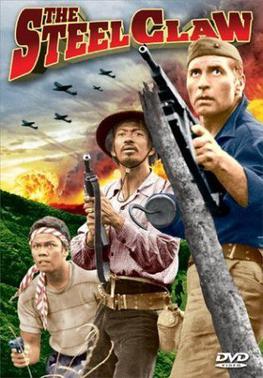
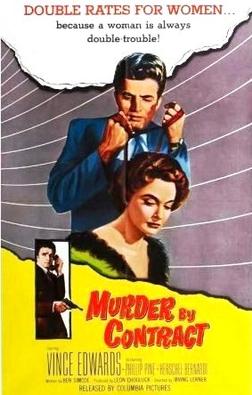
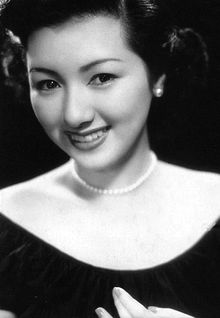
.jpg)
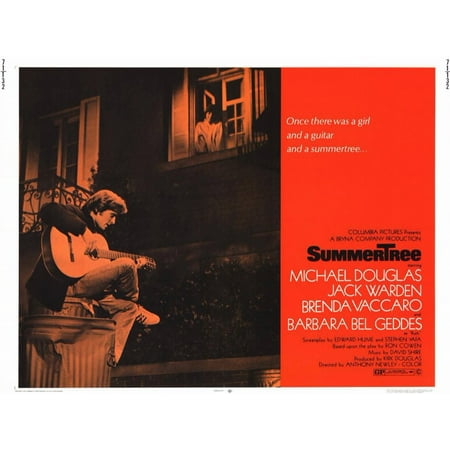

.JPG)









.png)



